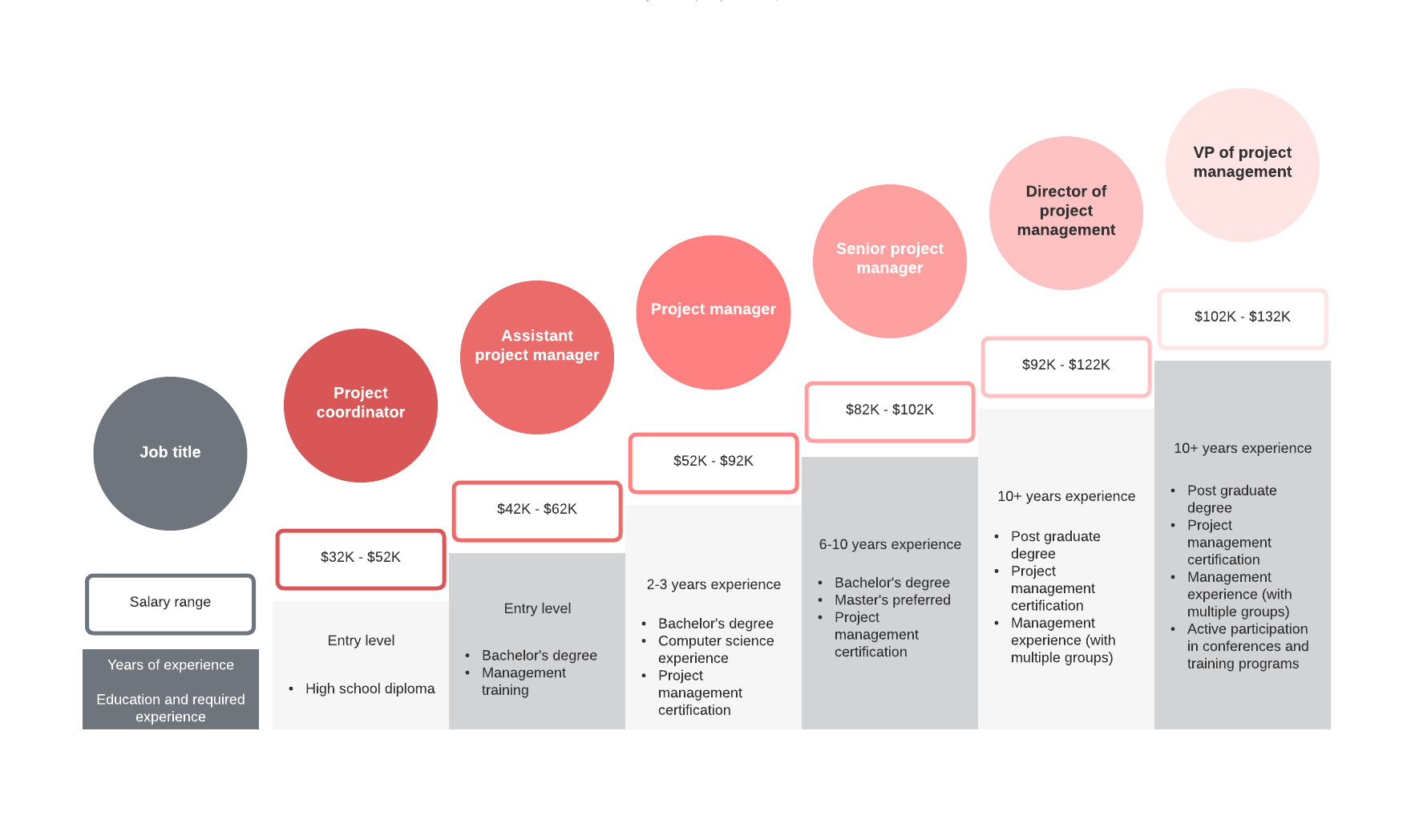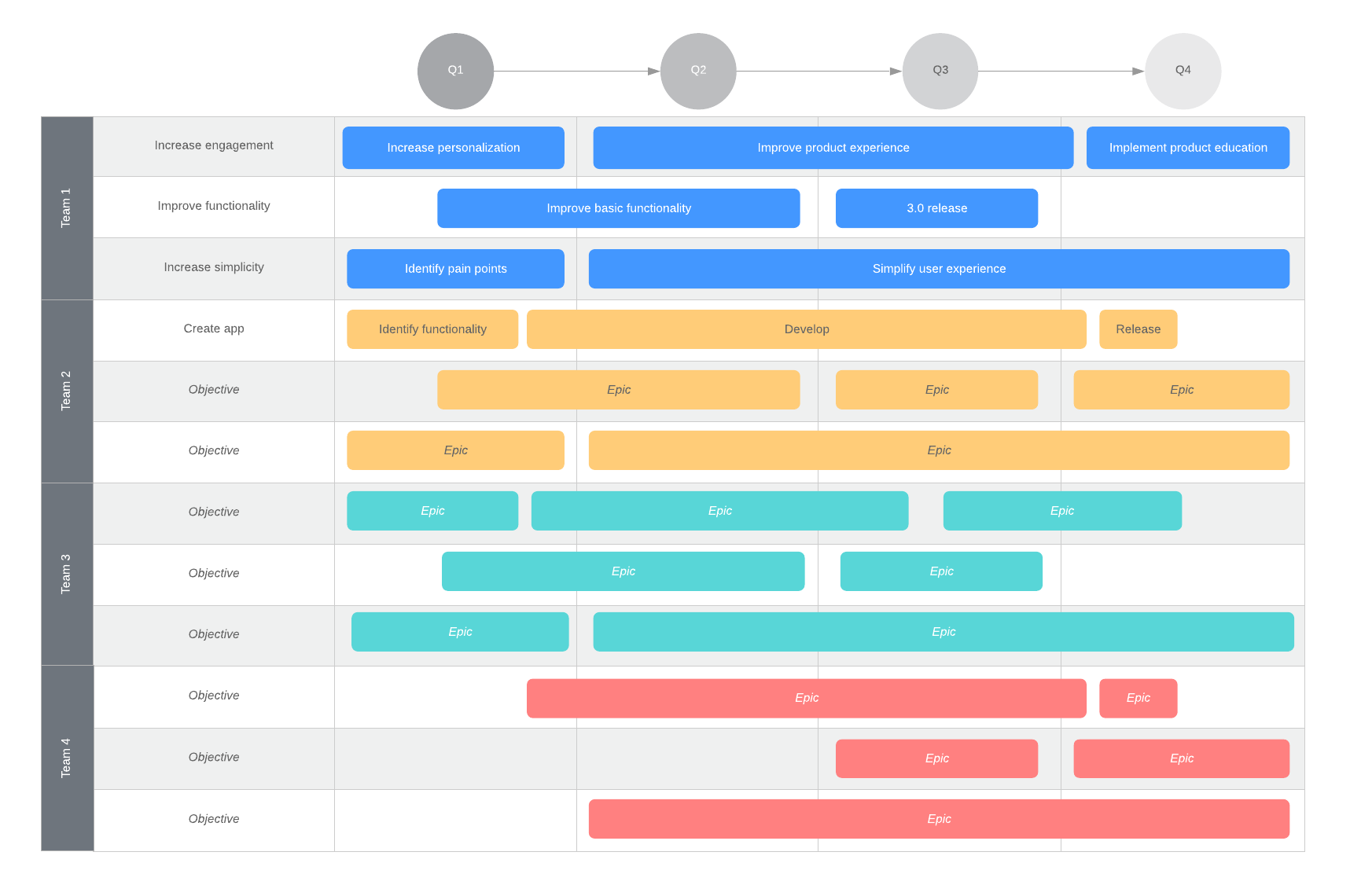If you’ve ever considered a job in product management, you’re not alone. Product manager roles are increasingly coveted positions, with high salaries and ample opportunities for growth. In fact, product management ranks fifth on Glassdoor’s 2019 list of best jobs in America, with over 11,000 job opportunities available.
But what exactly does a product manager do? And are you up to the task? Below we take a deep dive into the product manager career path so you can decide for yourself.

What is product management?
Modern product management has its roots in the 1930s when Neil H. McElroy drafted a memo at Procter & Gamble to justify hiring for a new role: the first product manager. These “brand men,” as he called them, would be uniquely responsible for a brand, from sales and marketing to client relationships.
Procter & Gamble’s new brand men role paved the way for the modern product-centric organizational structure and the role of the product manager as the voice of the customer.
Today, product management is an interdisciplinary role that combines strategy, design, leadership, and marketing to launch a successful product.
Because it encompasses so many responsibilities and intersects with so many other business roles, product management is often misunderstood and can look different from one company to another.
However your company (or prospective company) defines their product management roles, there are a number of core skills product managers need to be successful:
- Strategic thinking
- Business mindset
- Clear communication
- Collaboration
- Listening
- Strong project management
- UX background
- Technical proficiency
Because product management is such an interdisciplinary role, many product managers break into a career in product management from another background. That’s good news if you’re interested in transitioning to a product manager career in another field.
Product management vs. project management
Product managers and project managers often get confused. Though the two managers often work closely together, their roles are distinct.
An easy way to think of it is that the product manager is the CEO of the product. They oversee everything product-related from setting strategy, prioritizing releases, and championing the customer. Their job covers the entire lifecycle of the product.

On the other hand, a project manager typically works on projects within this ecosystem. Their projects are time-bound and are often set by the product manager or another business leader.
Their goal is to finish a project on time and within budget, ultimately helping the product manager deliver on their larger initiatives. Once a project is complete, the project manager moves on to the next initiative.
How much can a product manager earn?
The job sounds interesting, but let’s cut to the chase: What is the earning potential?
A career in product management can be both professionally and financially rewarding. Depending on your experience, skill set and level of responsibility, product managers can expect to earn anywhere from $80,000 to more than $150,000 a year.
Product management roles
You are likely to find several main product management roles you are likely to find across companies and organizations. While the specific responsibilities may vary from company to company, the basic roles are outlined below.
Associate product manager
Entry level
Associate product managers report to a product manager. The day-to-day responsibilities will overlap with that of a product manager on a smaller scale. You don't choose your own assignments, but you will have ownership for them.
Responsibilities might include:
- Data analysis
- UI design
- Defining features
- Making recommendations
This is an entry-level role, so it's a chance to learn the ropes, demonstrate how coachable you are, and show how well you understand the customer and product market.
Product manager
Mid-level
Product managers are mid-level roles. While you don’t necessarily have to have a direct product management background, you should have professional experience and demonstrable skills in communication, leadership, and strategy.
Product managers are responsible for the strategy, roadmap, and features of a product. You’ll need to be able to work with cross-functional teams, including UX, engineering, and marketing, to conduct accurate data analysis, forecasting, and market research.
The role is both strategic and tactical and requires strong leadership, collaboration, and product knowledge.

Senior product manager
Senior level
A senior product manager (PM) shares similar responsibilities as the product manager but on a higher level. Senior PMs usually have a solid background in product management by this point in their career.
In addition to managing higher-value products, senior PMs also lead the junior PMs and act as the liaison between the product management team and the business leaders.
Direct of product management
Senior level
The director role moves away from direct product management to leadership. Their focus in on making sure the team is running effectively and improving processes. You should have a strong management background and be comfortable working with senior and executive leadership.
VP of product management
Executive level
The VP of product is an executive position responsible for big initiatives and building and promoting products that will have the greatest business impact. While the role is less hands-on in product development, high-level responsibilities include:
- Budgeting
- Strategic alignment
- Communicating with and building leadership buy-in
Chief product officer
Executive level
Larger organizations may have a chief product officer. The role typically reports to the CEO and oversees all product activities in the organization. Similar to the VP of product, a chief product officer is in charge of defining the big picture product strategy for the company and setting long-term goals.
Tips for charting a career in product management
Product managers often come from a variety of backgrounds, including engineering, marketing, operations, tech support or IT, and sales and customer support. So if your experience with product management is laterally related, have no fear—you can still make a successful pivot into this rewarding career path.
However, there are a few ways to give yourself a leg up on the competition. Use the following tips to develop hard and soft skills that will help you succeed in product management.
1. Learn to code
Even a basic proficiency in writing code can set you apart to hiring managers. PMs who know how to code are called technical product managers and are in high demand because they can communicate their ideas more effectively with developers and engineers.
2. Build analytical skills
Being able to collect and sort through data to identify patterns, develop strategies, and solve problems is a fundamental part of the product manager role. The stronger your analytical skills, the more successful you’ll be as a product manager.
3. Understand UX
Great product managers know their customers inside and out. That is why a background in user experience can be such a valuable asset for aspiring PMs. Building your UX skills can help you dig into the customer mindset and ask the right questions to develop a stronger product line.
Product management is a growing and dynamic field with great opportunities for career advancement and professional development. And if you’re a problem solver with big ideas and a talent for leadership, it might even be the job for you.

Explore how Lucidchart can help you in your product management career.
Learn moreAbout Lucidchart
Lucidchart, a cloud-based intelligent diagramming application, is a core component of Lucid Software's Visual Collaboration Suite. This intuitive, cloud-based solution empowers teams to collaborate in real-time to build flowcharts, mockups, UML diagrams, customer journey maps, and more. Lucidchart propels teams forward to build the future faster. Lucid is proud to serve top businesses around the world, including customers such as Google, GE, and NBC Universal, and 99% of the Fortune 500. Lucid partners with industry leaders, including Google, Atlassian, and Microsoft. Since its founding, Lucid has received numerous awards for its products, business, and workplace culture. For more information, visit lucidchart.com.
Related articles
Pull It Together: Skills for Today’s Product Manager
At its core, product management brings creativity and strategy together to see new products from conception to launch. Learn the key skills that make a great product manager (plus find some templates that can help in this role).
Product management tools: Find the right software to build your product stack
See the best product management tools to help you and your team be more agile and get your products to market quickly.
A deep dive into the product management process
We'll explore product management so you can prioritize features, meet customer needs, and boost your chances of success.

